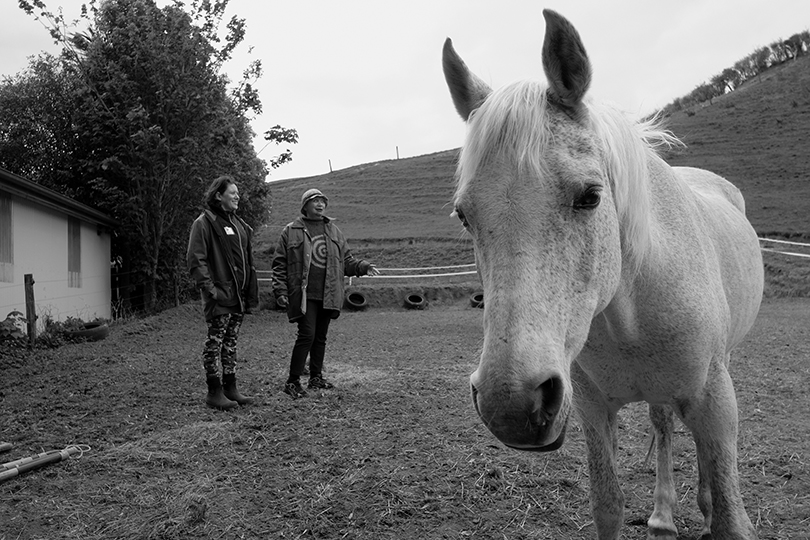Te Ao o te Māori
Dec 22, 2019

A window into the rich lifestyles of contemporary Māori
Photographs and words Nā Phil Tumataroa

Sharon Roberston and her whānau live on 10 acres of lush, rolling Taranaki farmland, 30 minutes drive from New Plymouth.
Horses have been part of her life since childhood. In recent years she has transformed her love of these majestic animals into a business that is helping to change lives.
“A lot of people talk about equine therapy as being magical. It’s hard to explain,” she says.
Interaction between horse and human and their responses to each other when they meet and spend time together is at the heart of the therapy.
“It harnesses the horses’ sensitivities. The fact that they live in herds and are a prey animal means they’re always looking out for each other and making sure the herd’s okay – they will respond immediately to any feeling or awareness that comes in.”
Sharon (Ngā Rauru, Ngāi Tahu) is a trained nurse and has worked in mental health here and in the UK for the past 30 years. To supplement her business Hoiho Whakaora Tangata – Horses Helping People, she works four days a week as a Community Mental Health nurse for local health provider, Tui Ora.
She says she stumbled across the Equine Assisted Growth and Learning Association (EAGALA) model of psychotherapy when she was living in London, and thought, “This is what I’ve been looking for.”
“I’ve always had horses around me, even in London; so I signed up for the training straight away and I’ve been certified since 2012.
“I knew that horses always made me feel better and calmer – so finding that was amazing. I just thought, ‘If only this could be available to more people.’”
Sharon left Taranaki in 1999 for what was supposed to be a “big OE for a couple of years”, but returned in 2013, married and with a young son.
“It’s an unusual thing, so I knew my work was cut out for me; especially coming home to rural New Zealand and saying, ‘Come and stand in a paddock with my horses, they’ll help you feel better’. It’s a hard sell really, but I thought, ‘This is what I want to do.’”
The day I visited Sharon, she invited local kuia Te Rau Oriwa Davis (Ngāruahine Rangi) to experience the work that she does, so I could take some photos. This would not be possible with her clients, as she must maintain the confidentiality of those who come to her with a range of disorders including post-traumatic stress, anger issues, anxiety, and mental illnesses.
It’s a strong and emotional connection Te Rau makes with one of the horses, which brings her to tears as they stand silently connected and quietly sharing their time. She whispers to the animal and it instinctively nuzzles closer, intensifying their new-found bond. Time passes slowly, and at the end of their embrace, she walks away comtemplative and smiling.
“It’s just about being open to it, and some people aren’t. And if they’re not open, that’s fine,” says Sharon.